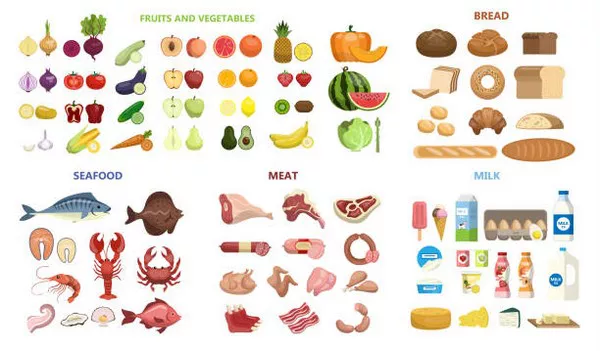Protein is an essential macronutrient that plays a crucial role in the proper functioning of the human body. From building and repairing tissues to supporting immune function, protein is a cornerstone of a healthy diet. When the body is low in protein, it can lead to a cascade of adverse effects that impact various aspects of health and well-being. In this article, we will explore the repercussions of protein deficiency, shedding light on the signs, symptoms, and long-term consequences of inadequate protein intake.
The Role of Protein in the Body
Before delving into the consequences of low protein levels, it’s crucial to understand the fundamental role that protein plays in maintaining overall health. Proteins are composed of amino acids, often referred to as the building blocks of life. There are twenty different amino acids, and the human body requires all of them to function optimally.
Proteins serve a myriad of functions:
Muscle Building and Repair: Proteins are integral for the growth and maintenance of muscles. They aid in the repair of muscle tissues after exercise or injury.
Enzyme Production: Enzymes, crucial for various metabolic processes, are often protein-based. These enzymes facilitate chemical reactions within the body.
Immune System Support: Many components of the immune system, including antibodies, are composed of proteins. A deficiency can compromise the body’s ability to fight infections.
Transport of Substances: Proteins act as carriers, transporting essential substances like oxygen and nutrients throughout the body.
Cell Structure: Proteins contribute to the structure of cells, providing the framework for cell membranes and organelles.
Recognizing the Signs of Protein Deficiency
One of the most noticeable signs of low protein levels is muscle wasting. When the body lacks an adequate protein supply, it may break down muscle tissue to obtain essential amino acids. This can lead to weakness, fatigue, and a noticeable reduction in muscle mass.
2. Edema:
Protein plays a crucial role in maintaining fluid balance in the body. Inadequate protein levels can disrupt this balance, leading to edema, a condition characterized by fluid retention and swelling, particularly in the extremities.
3. Hair, Skin, and Nail Issues:
Proteins are essential for the health of hair, skin, and nails. A deficiency may manifest in brittle nails, thinning hair, and dry, flaky skin.
4. Impaired Immune Function:
The immune system heavily relies on proteins for the production of antibodies and other immune cells. A lack of protein can compromise the body’s ability to ward off infections, leading to frequent illnesses.
5. Fatigue and Lethargy:
Proteins contribute to energy production in the body. When protein levels are low, individuals may experience persistent fatigue and a general lack of energy.
6. Difficulty Concentrating:
Proteins are essential for the synthesis of neurotransmitters, the chemical messengers in the brain. Inadequate protein intake can affect cognitive function, leading to difficulty concentrating and mental fog.
Long-Term Consequences of Protein Deficiency
1. Stunted Growth in Children:
Adequate protein is crucial during periods of rapid growth, such as childhood and adolescence. Protein deficiency in these stages can lead to stunted growth and developmental issues.
2. Increased Risk of Infections:
The immune system relies on proteins to function effectively. Chronic protein deficiency can elevate the risk of infections and make it harder for the body to recover from illnesses.
3. Organ Damage:
Prolonged protein deficiency can lead to organ damage, particularly affecting the liver and the heart. The body may prioritize essential functions, leading to the breakdown of vital organs when protein resources are insufficient.
4. Bone Health Issues:
Proteins play a role in maintaining bone density and strength. Inadequate protein intake can contribute to bone health issues, potentially leading to conditions like osteoporosis.
5. Hormonal Imbalances:
Proteins are involved in the production of hormones that regulate various bodily functions. A deficiency can disrupt hormonal balance, impacting reproductive health and other physiological processes.
Addressing Protein Deficiency
If someone suspects they are not getting enough protein, it’s crucial to address the issue promptly. Dietary adjustments are often the first line of defense. Including protein-rich foods such as lean meats, poultry, fish, eggs, dairy products, legumes, and nuts can help meet daily protein requirements.
In some cases, dietary changes may not be sufficient, and supplementation might be necessary. Protein supplements are available in various forms, including powders, bars, and shakes. However, it’s essential to consult with a healthcare professional before incorporating supplements, as excessive protein intake can also have adverse effects.
Conclusion
Protein deficiency is a serious health concern with far-reaching consequences. Recognizing the signs and symptoms early on is crucial for prompt intervention. A well-balanced diet that includes an adequate amount of protein is essential for maintaining overall health and preventing the long-term repercussions associated with protein deficiency. If in doubt, seeking guidance from a healthcare professional or a registered dietitian can help tailor a nutrition plan that meets individual protein needs and promotes optimal well-being.

